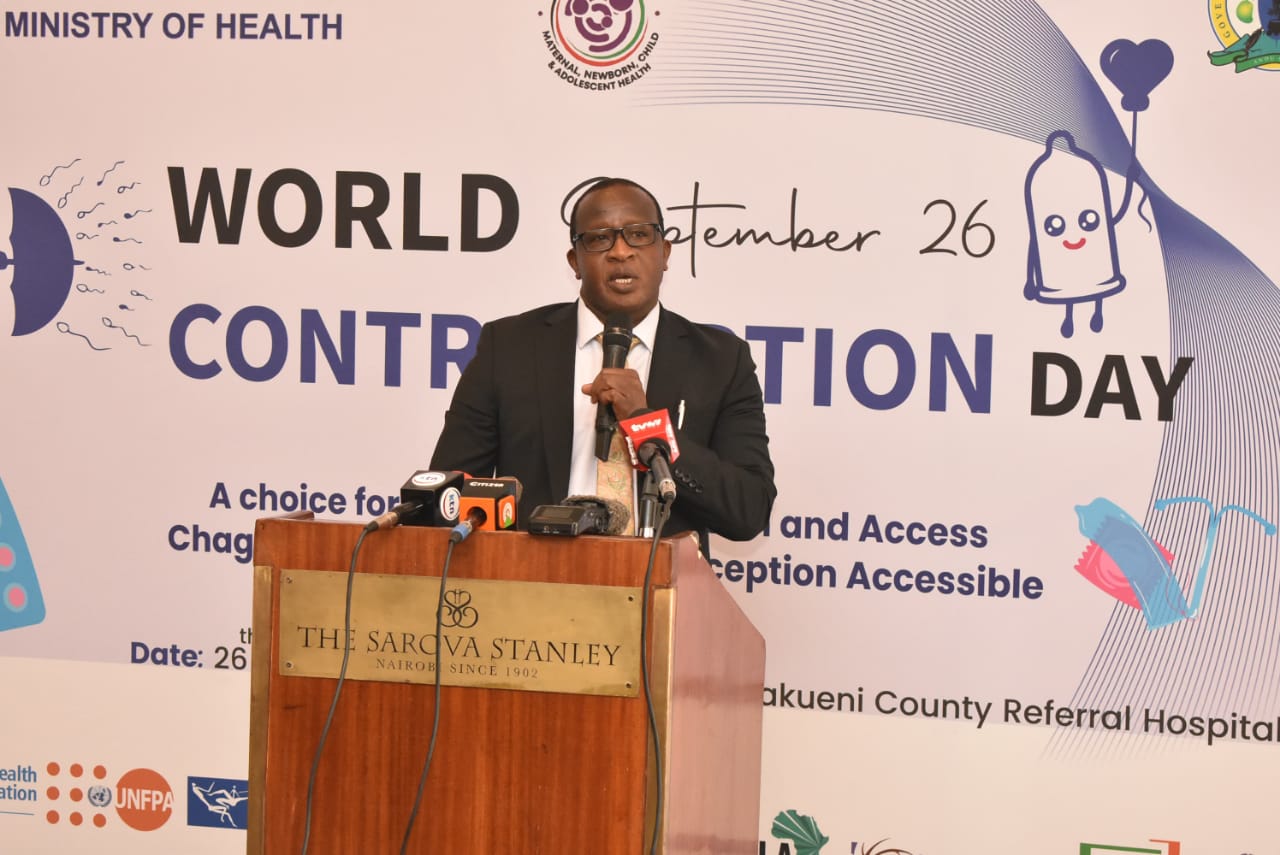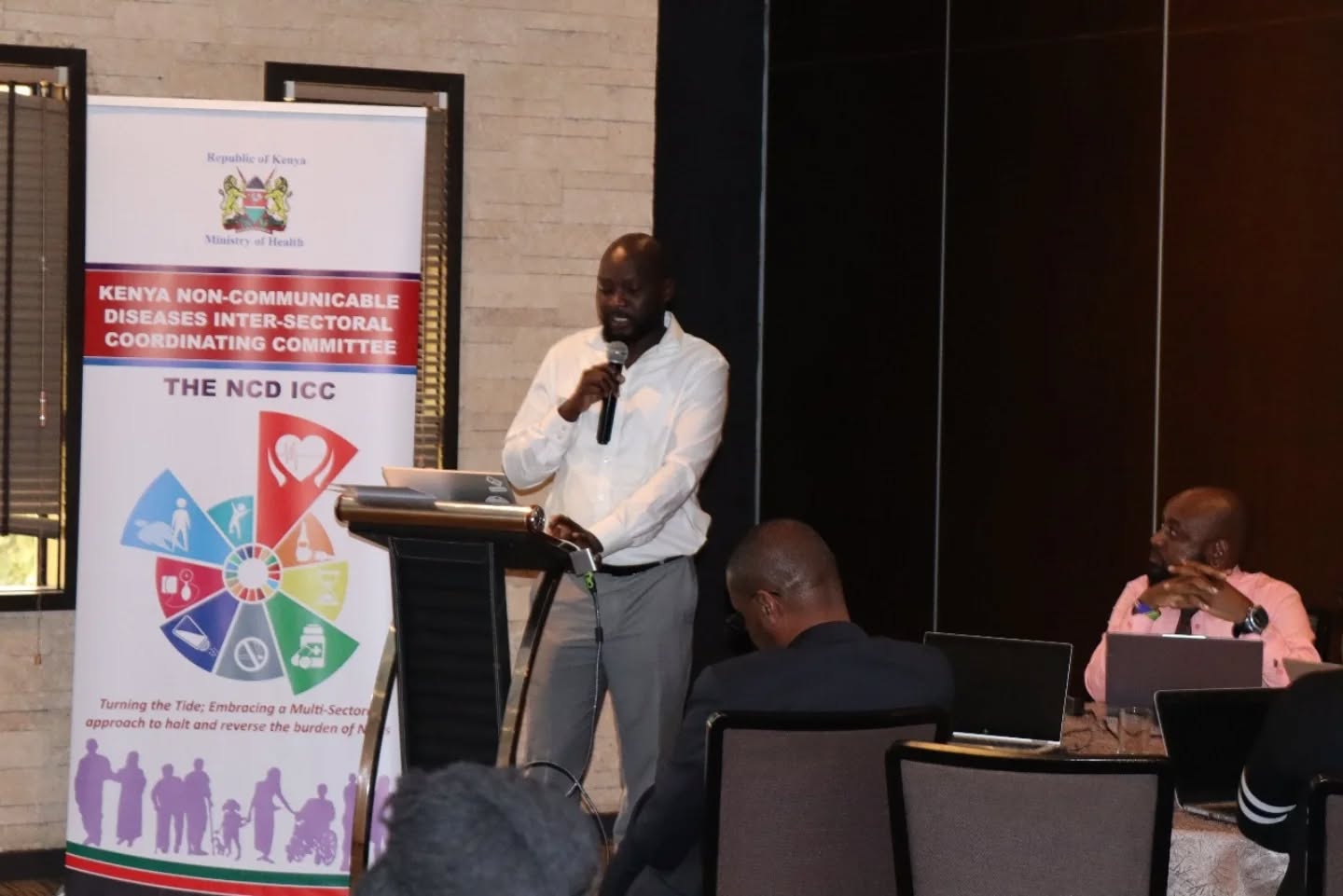Kenya Pushes for More Resources and Innovation to Expand Family Planning

Dr. Edward Serem speaking during breakfast meeting held in Nairobi on September 22nd 2025 at Sarova Stanley
By Winnie Atieno
Kenya has called for increased resources, stronger domestic financing, and new innovations to expand access to contraception during a breakfast meeting held ahead of World Contraception Day, which will be marked on Friday.
The annual event, themed “A Choice for All: Agency, Intention and Access”, brought together government officials, health experts and community leaders at a time when the country is grappling with rising teenage pregnancies and pressure to widen access to modern contraceptives.
Speaking during a breakfast meeting, Dr. Edward Serem, head of Reproductive Maternal, Newborn, Child and Adolescent Health (RMNCAH) at the Ministry of Health, revealed that Kenya’s family planning program has already saved countless lives, averting 2.4 million unintended pregnancies, 600,000 unsafe abortions and about 10,000 maternal deaths in the past decade.
“Our goal is to achieve a modern contraceptive prevalence rate of 64 percent by 2030 and 70 percent by 2050. This requires increased financing, stronger supply chains, and adoption of innovations such as self-administered injectables and long-acting devices,” he said.
Dr. Serem added that beyond access to commodities, the national program seeks to advocate for more funding, showcase innovations and reflect on the progress made so far in improving reproductive health.
“It is also our objective to advocate for an increase in resources, expand domestic financing, highlight innovations, reflect on the progress made so far, and improve access to contraception,” he said.
The ministry also pointed to advances such as self-injectables and long-lasting contraceptives like Mirena, now proven effective for up to eight years, as part of efforts to expand choices for women across the country.
Makueni County, which is hosting this year’s national celebrations, has pioneered postpartum family planning, ensuring that women are offered contraceptive options within 48 hours and up to six months after giving birth.
Dr. Stephen Mwatha, Director for Preventive and Promotive Health Services, said the county had made deliberate investments in family planning, including a dedicated budget line and mentorship programs for healthcare workers.
“We have been deliberate in ensuring every woman leaving a maternity ward is offered a family planning option. But challenges remain, especially teenage pregnancies which account for 17.9 percent of all births in Makueni, and occasional shortages of commodities,” Dr. Mwatha said.
He added that the county has involved men as “family planning champions” to ensure that contraception is not left solely to women.
At community level, local administrators called for family planning services to reach even the most informal spaces.
“In our towns, you find children being born everywhere, even in the streets. We must work together to ensure families plan responsibly and use safe devices,” said village administrator Charles Okumu.
Despite progress, teenage pregnancy and maternal mortality remain national challenges. Officials stressed that family planning is not only a health intervention but also a social and economic necessity that safeguards women’s lives and secures the future of families.
The World Contraception Day celebrations will be held on Friday in Makueni, with health leaders and partners expected to rally behind expanded access and stronger investment in reproductive health.




